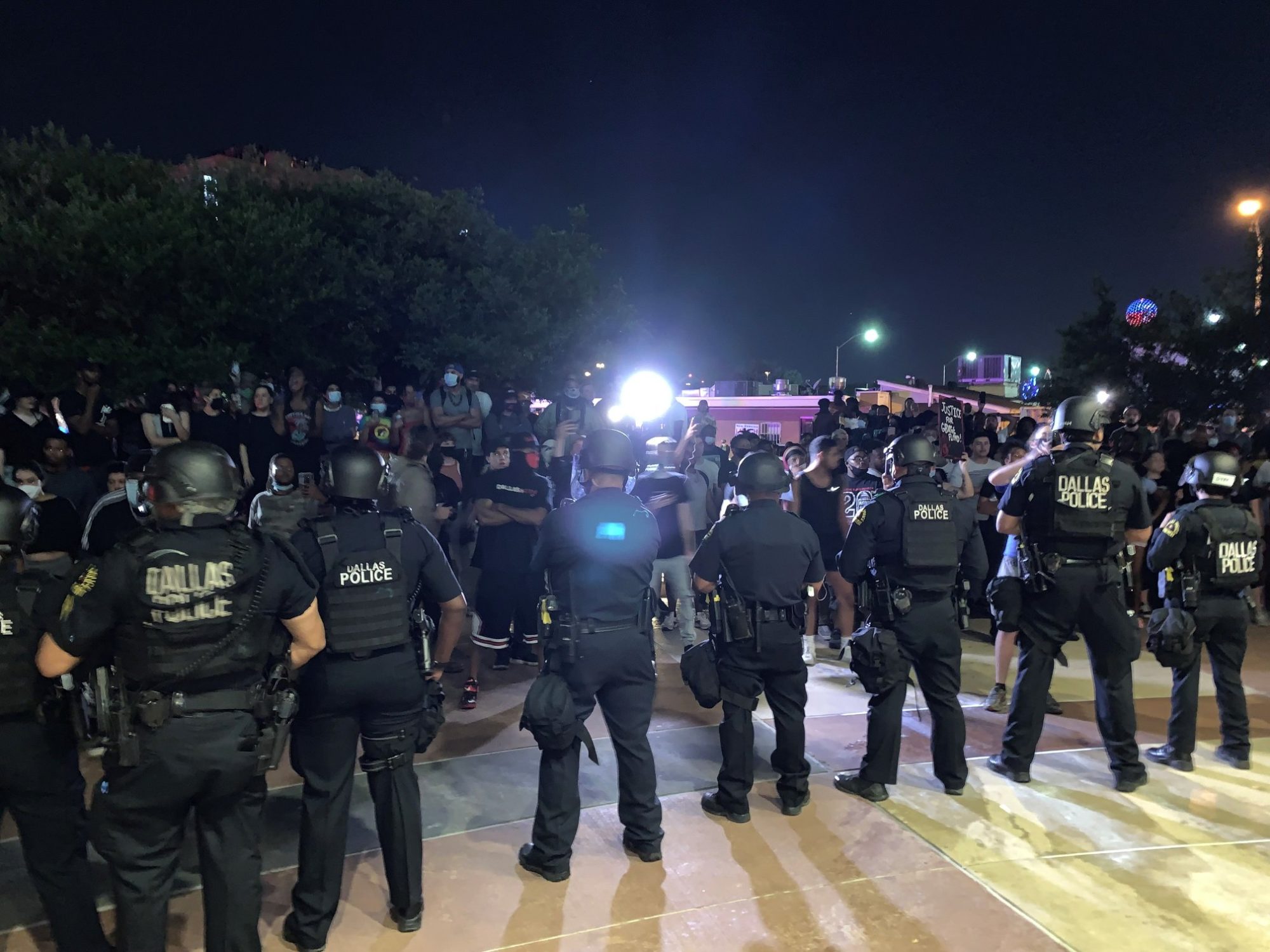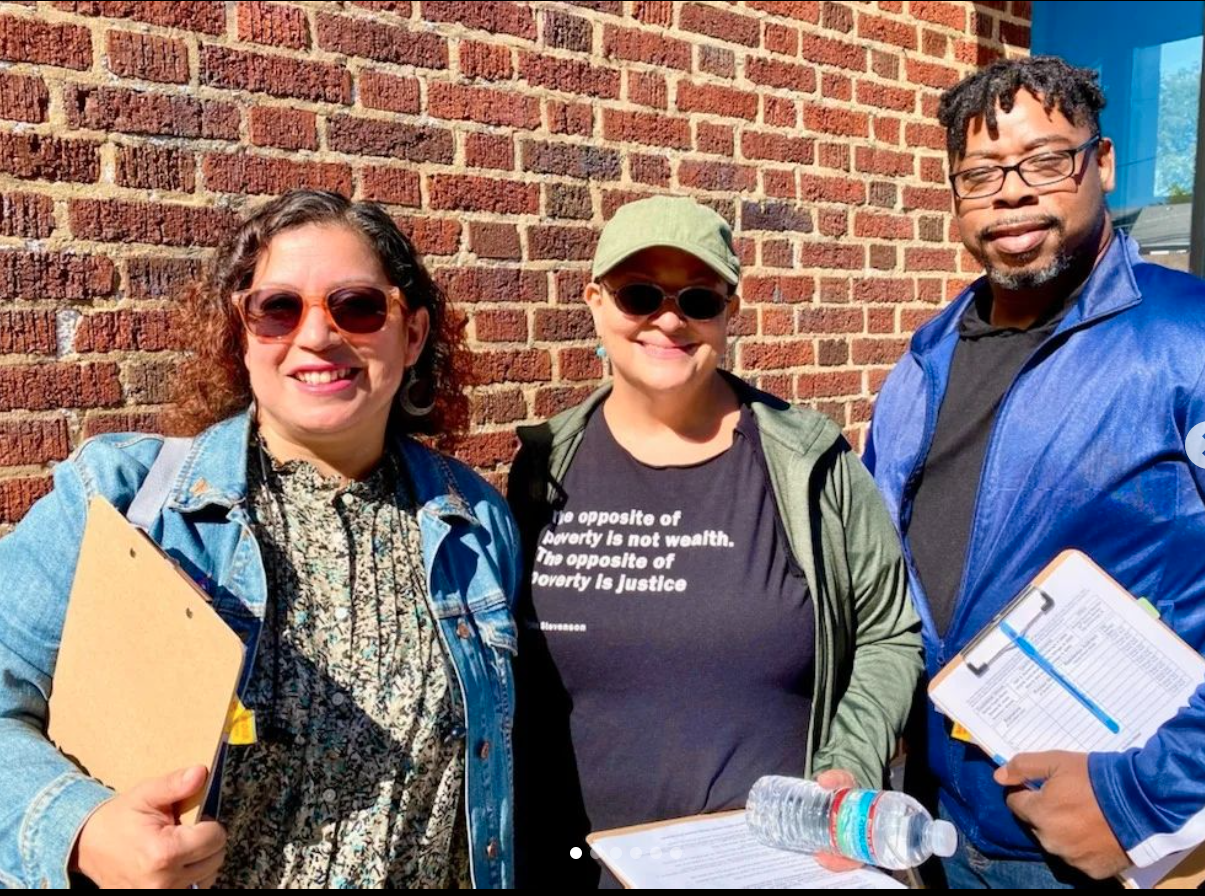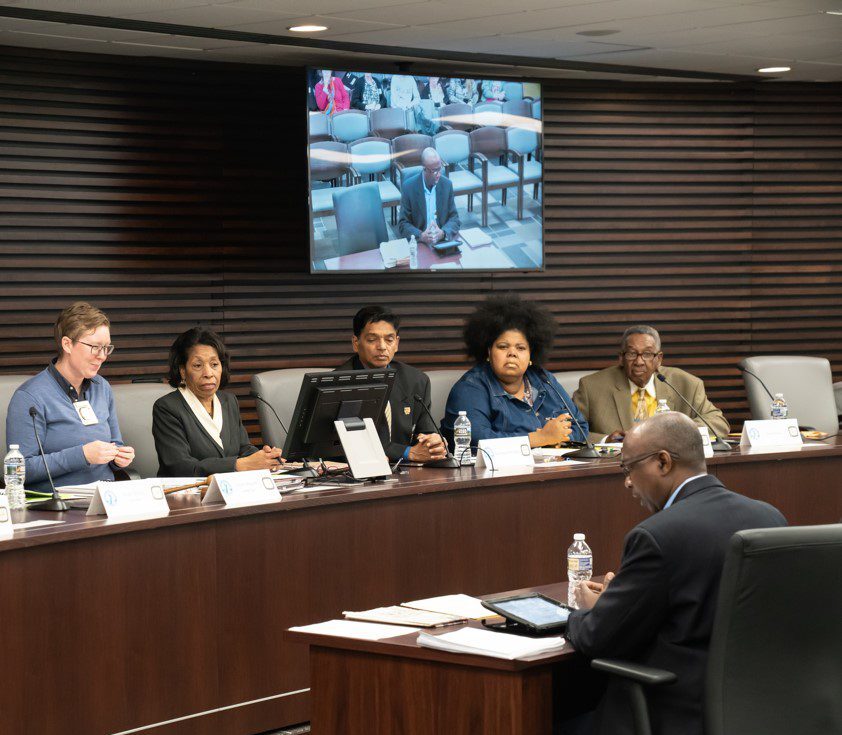Austin Voters Embrace Civilian Police Oversight in Saturday Election
The local police union promptly vented its anger, and a separate police reform measure in San Antonio suffered a large defeat.
Michael Barajas | May 8, 2023


Tragedy and scandal have bolstered the Austin Police Department’s reputation for violence and racism in recent years. Austin cops often treat mental health crises like violent crimes, killing or traumatizing people who need help. And they have responded aggressively to people protesting police conduct, seriously maiming several people during the large demonstrations following George Floyd’s murder and making Austin a hotspot for head injuries from police crowd control weapons during the 2020 protests.
Activists in Austin have advocated for greater civilian oversight in response. A coalition of progressive organizers pushed the city council to amend the city’s contract with the Austin Police Association (APA) in order to reduce barriers to accountability and to create an Office of Police Oversight. But the police union fought back, attempting to leash the newly empowered watchdog by blocking it from conducting independent investigations into complaints of misconduct against officers.
Their confrontation came to a head this weekend. Activists put an ordinance on the municipal ballot to bolster and codify the powers of civilian oversight in the city. The police union and its supporters retaliated with a petition drive of their own, which deceptively bore the same name as activists’ version, and succeeded in putting a competing ordinance in front of voters to weaken oversight.
Austin voters on Saturday decisively sided with police reformers. A resounding 70 percent approved Proposition A, the measure that would bolster oversight of police. They overwhelmingly rejected Proposition B, the version supported by the police union, which received support from only 20 percent of voters.
Kathy Mitchell, a longtime advocate for police accountability in Austin who helped organize the campaign for Prop A, says the results illustrate strong support in the city for robust civilian oversight of police, and voters’ frustration at police efforts to push back against their organizing of recent years.
“We have literally tried everything, there was no other way to enforce the stronger standards for oversight other than going to the voters and saying, ‘Okay, you’re going to have to show that this is something you expect,’ Mitchell said. “And now they have.”
Mitchell says she hopes that Prop A’s strong showing empowers city officials to begin changing police oversight as early as this week, including pushing for independent review of complaints against officers and cases involving police violence.
The results in Austin were a stark contrast to the overwhelming defeat of a different police reform ballot measure 80 miles south in San Antonio, which also held its municipal elections on Saturday. As Bolts reported last month, San Antonio activists petitioned for a more sweeping ballot measure, also called Proposition A, that sought to decriminalize weed and abortion as well as reduce arrests and jail time for minor charges, but faced inflammatory rhetoric and well-funded opposition from the police union and much of the city’s political establishment.
Only 28 percent of San Antonio voters supported Prop A on Saturday. The result was a decisive win for the San Antonio Police Officers’ Association, one of the most powerful and combative police unions in the country. “Tonight, the voices of our great city were heard and heard loudly,” Danny Diaz, the union’s president, said during a victory party Saturday night. “We will not become another statistic, we will not tolerate criminal leniency, and we will not allow our city to crumble.”
Prop A’s organizers issued a statement after the election accusing the police union and its supporters of “spreading fear tactics and lies” in its campaign against the ballot measure. “We still have to do a lot of public education. We’ve been doing it for several years and we’re going to continue,” Ananda Tomas, executive director of the police reform group that led the effort, told reporters Saturday night, according to the San Antonio Current. “We know when we’re at the doors and we break all of these things down, that folks are with us.”
The police union in Austin was no less defiant than San Antonio’s despite its defeat. “The APA simply will not stand by while this city and anti-police activists operate with blatant disregard for state law and the rights and protections afforded to our hardworking men and women,” the Austin Police Association tweeted on Saturday night.
Mitchell says it’s telling that the union is talking about state law and seems to be appealing more to Texas’ Republican leaders at this point than to local voters.
The Austin Police Association is advocating for a bill drafted by Republicans in the legislature that would prohibit civilian oversight of police departments that has already passed the Texas Senate and is now pending in the House. The legislation, which would undermine Austin’s new oversight ordinance by blocking access to police information until the department finishes investigating itself, mirrors measures that Republicans have pushed through elsewhere in the country.
State-level Republicans have stepped in to protect local police in other ways. Republican governor Greg Abbott has publicly decried the prosecution of Austin police who brutalized protesters, and even appointed one of the officers indicted for assaulting demonstrators in 2020 to a state law enforcement commission.
“Increasingly, and this has been going on for a while, APA is turning to the GOP to save itself from its own community,” Mitchell said. “They have decided strategically to stop talking to Austin, and that is remarkable, because they are our employees.”




